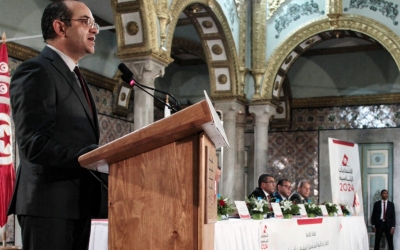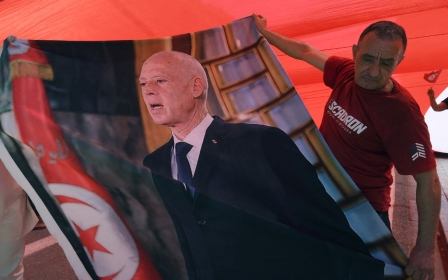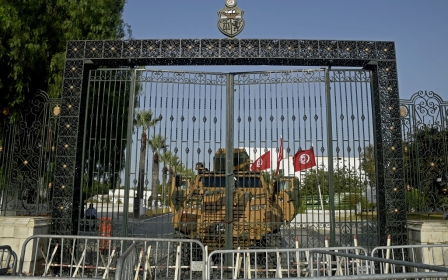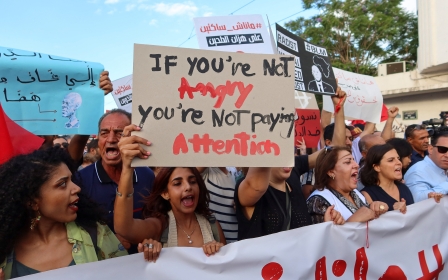Tunisia: Presidential candidate Zammel receives 12-year prison sentence
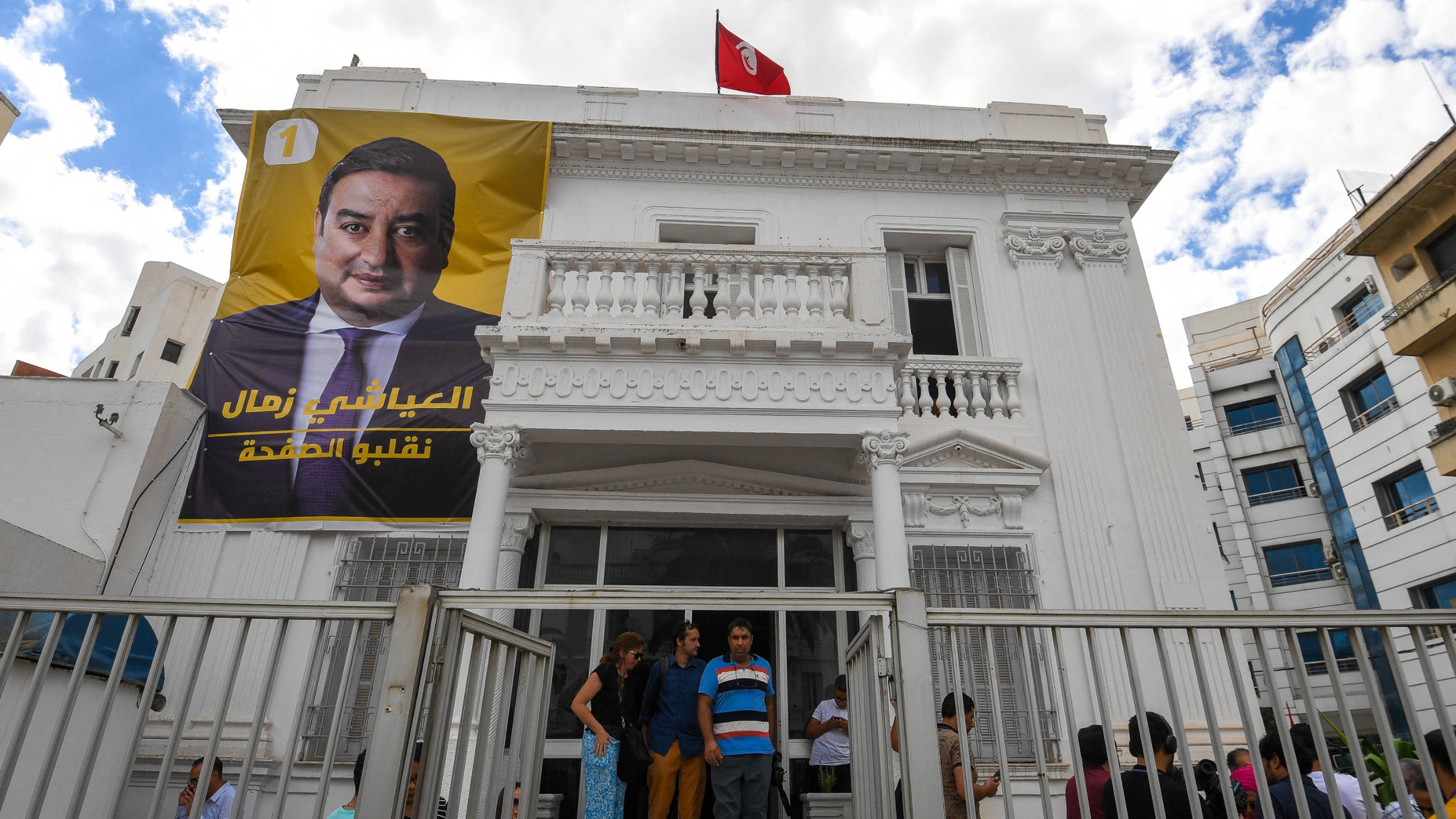
Tunisian politician Ayachi Zammel, a candidate in the presidential election scheduled for 6 October, has been jailed for 12 years, according to his lawyer.
"The court in Tunis sentenced Ayachi Zammel to 12 years in prison in four cases" for charges related to forging voter endorsements, three years for each case, and banned him from voting, his lawyer Abdessater Messoudi told AFP on Tuesday.
Zammel "remains a candidate in the election" on Sunday, his lawyer added.
Last Wednesday, Zammel was sentenced to six months in prison by the Jendouba court for "falsification of documents", a sentence that was added to a previous sentence of 20 months in prison for the same charges by the same court on 18 September.
A total of 37 separate prosecutions have been launched against him in all the governorates of Tunisia for similar reasons, according to Messoudi.
New MEE newsletter: Jerusalem Dispatch
Sign up to get the latest insights and analysis on Israel-Palestine, alongside Turkey Unpacked and other MEE newsletters
Zammel, 43, an agri-food businessman unknown to the general public until his candidacy, heads a small liberal party.
He is one of just two candidates approved by the Independent High Authority for Elections (Isie), Tunisia's electoral authority, to challenge Kais Saied for the presidency. He was arrested on 2 September, the same day his candidacy was authorised.
A coalition of the left-wing opposition and figures close to Tunisia's largest opposition party Ennahda called for a vote in his favour to end the Saied era.
Pour libérer Ayechi Zammel, votez pour lui en masse le 6 octobre.#Tunisie #تونس pic.twitter.com/Tf4rVxnOkx
— Gargabil (@Gargabil) October 1, 2024
Translation: "To free Ayechi Zammel, vote for him en masse on 6 October 6."
The election has been described as highly unfair by a wide range of observers and rights organisations, which accuse the incumbent president of prosecuting, detaining and excluding his rivals.
Saied, who was democratically elected in 2019, orchestrated sweeping power grab two years later that included dissolving parliament and weakening counterpowers, such as the press, NGOs and the justice system.
In the summer, the Isie rejected the bids of some 14 presidential hopefuls and later presented a final list of only three candidates: Saied, Zammel and Zouhair Maghzaoui, a former MP for the pan-Arabist left who long supported Saied but now takes a more critical stance towards the president.
At the end of August, Tunisia's administrative court accepted the appeals of three candidates disqualified from running in the election, but its ruling was ignored by the Isie, sparking accusations that the electoral body was supporting the president by excluding his rivals.
The disqualified contenders seen as serious competitors for Saied included: Abdellatif Mekki, a former leader of Ennahda, whose leader Rached Ghannouchi has been imprisoned since April 2023 for comments deemed critical of Saied; Mondher Zenaidi, a minister under former autocrat Zine el-Abedine Ben Ali; and Imed Daimi, an adviser to former President Moncef Marzouki, also close to Ennahda.
'Kill democracy'
On Friday, Tunisia's parliament approved a law that strips the administrative court of its power to rule on election-related disputes, a move decried as anti-democratic just days before the ballot.
The law, which was swiftly pushed through the legislature, makes the court of appeals the only one with the authority to rule on issues related to elections.
Observers say the administrative court is seen as more independent than the court of appeals.
Alexis Deswaef, vice president of the International Federation for Human Rights (FIDH), said lawmakers were working to "urgently pass this law to remove administrative litigation from the administrative court, because this court has shown a certain unpleasant independence."
During parliament's session on Friday, independent lawmaker Bilel Mechri played a recording of Saied from 2019 in which he said that any amendments to the electoral law just before a vote would "kill democracy".
Another independent parliamentarian, Hichem Hosni, called the bill "unconstitutional", while Wissam Sghaier, spokesman for centrist party Al Jomhouri, said the amendment was "a political crime in all its splendour" that adds to "the abuse and repression" of Saied's critics.
Earlier this month, Human Rights Watch said the Isie had "intervened to skew the ballot in favour of Saied".
The New York-based NGO said that in addition to Zammel, at least eight prospective candidates have been convicted and sentenced to prison terms or given lifetime bans from running for election since the start of the electoral period on 14 July, with others experiencing harassment and intimidation.
Other candidates have complained of being hampered administratively in obtaining various documents, such as sponsorship forms and criminal records, to enable them to compile their files.
"By blocking prospective challengers, President Saied is burying what remains of Tunisia's democracy with this election," said Bassam Khawaja, deputy Middle East and North Africa director at HRW.
"The international community should no longer remain silent and should urge the government to rectify an already tainted electoral process."
Middle East Eye delivers independent and unrivalled coverage and analysis of the Middle East, North Africa and beyond. To learn more about republishing this content and the associated fees, please fill out this form. More about MEE can be found here.


